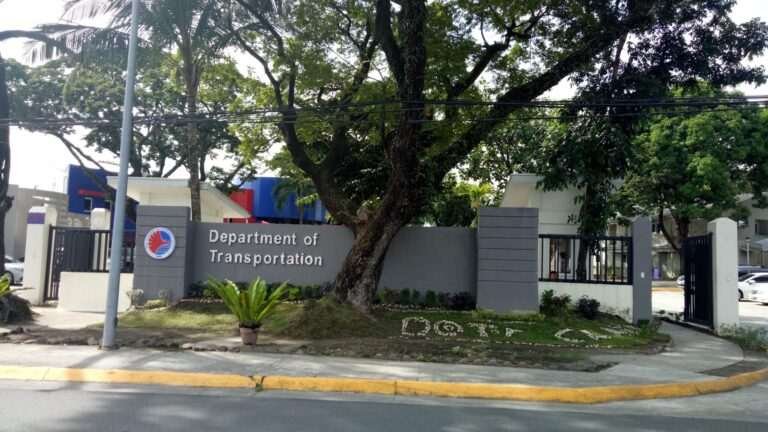Manila, Philippines — The Korea Export-Import Bank (KEXIM) has reaffirmed its commitment to supporting the Philippines’ transportation infrastructure projects, signaling a deeper partnership between the two nations. This collaboration is set to play a pivotal role in enhancing the country’s public transportation systems, according to the Department of Transportation (DOTr).
In a recent statement, the DOTr highlighted KEXIM’s role in financing critical transport infrastructure, ranging from railway development to modernized public transit systems. The partnership aims to improve the Philippines’ aging transportation infrastructure, aligning with the government’s long-term goal of sustainable and inclusive growth.
A Longstanding Partnership
KEXIM’s involvement in the Philippines’ transportation projects is not new. The bank has been a key player in financing various infrastructure projects across the country, particularly in the development of modern railways. The most prominent of these projects is the North-South Commuter Railway (NSCR), a major rail system designed to connect key cities and reduce travel times for millions of Filipinos.
According to the DOTr, KEXIM has provided significant financial backing for both the initial phases and expansion of the NSCR, which is seen as a cornerstone of the Philippines’ transportation future. The project is expected to alleviate congestion in the capital region, boost economic activity, and promote more sustainable modes of transportation.
“With the support of the Korea Export-Import Bank, we are ensuring that the future of Philippine transportation is not just more efficient but also more accessible to the public,” the DOTr said in a statement.
Financial Commitments and Expertise
KEXIM’s role extends beyond financing. The bank provides valuable technical expertise and advisory services to ensure that the Philippines meets international standards in its transportation projects. This includes guidance on the integration of modern technologies, sustainability measures, and project management strategies.
For the NSCR, for example, KEXIM has been instrumental in advising on the adoption of advanced rail technologies, which will help to optimize the system’s efficiency and reduce operational costs. The bank’s financial commitment, combined with its technical support, underscores the depth of Korea’s involvement in the country’s infrastructure transformation.
“Through KEXIM’s funding and expertise, the Philippines is not just building transportation projects; we are building a transportation future that is smart, efficient, and globally competitive,” said a representative from the DOTr.
Long-Term Benefits
The impact of KEXIM’s support is expected to ripple throughout the Philippines’ economy. Improved transportation infrastructure will not only benefit daily commuters but will also bolster trade and investment opportunities by reducing logistical bottlenecks. This, in turn, is projected to enhance the country’s overall competitiveness in the region.
The NSCR, along with other projects like the Metro Manila Subway and the Mindanao Railway, is seen as vital in addressing the country’s chronic traffic woes and fostering regional development. The projects are also expected to create thousands of jobs, stimulate local industries, and promote environmental sustainability by encouraging the use of mass transit over private vehicles.
The DOTr noted that the transportation improvements would contribute to the government’s broader agenda of fostering economic growth outside Metro Manila by improving connectivity between key provinces. These projects are also aligned with the Philippines’ commitment to the United Nations Sustainable Development Goals, particularly in promoting sustainable cities and communities.
Strengthening Bilateral Ties
KEXIM’s involvement is a testament to the deepening relationship between South Korea and the Philippines. The two nations have enjoyed strong diplomatic ties for decades, and this partnership in infrastructure development further solidifies their economic and political cooperation.
The Philippines is considered a key partner in South Korea’s New Southern Policy, which seeks to strengthen relations with Southeast Asian nations. Through initiatives such as the financing of transportation projects, South Korea aims to expand its influence in the region, providing both financial resources and technological expertise to its partners.
“The collaboration with KEXIM is a reflection of the Philippines’ and South Korea’s shared vision for progress and innovation. Our partnership in these infrastructure projects symbolizes the strength of our bilateral relations,” a DOTr official said.
Challenges Ahead
While the partnership with KEXIM has yielded promising results, challenges remain. The sheer scale of the transportation projects and the complexities involved in their implementation could lead to potential delays. The government has acknowledged that logistical issues, land acquisition, and regulatory approvals are some of the hurdles that must be overcome.
Nevertheless, the DOTr remains optimistic about the future. With KEXIM’s continued support, the department is confident that these challenges can be addressed, and the projects will be delivered on time and within budget.
A Vision for the Future
The partnership between the Korea Export-Import Bank and the Philippines marks a significant step forward in the nation’s journey toward modern, efficient, and sustainable transportation. The projects backed by KEXIM are not just physical structures; they represent a vision for the future of Filipino mobility and connectivity.
As the Philippines continues to build and expand its transportation network, the collaboration with KEXIM is expected to remain a cornerstone of its infrastructure development strategy. With Korea’s financial and technical backing, the Philippines is poised to enter a new era of growth, progress, and regional integration.
In the years ahead, the results of this partnership will be felt not only in the daily lives of Filipino commuters but also in the broader economy as improved infrastructure helps unlock the country’s full potential.

